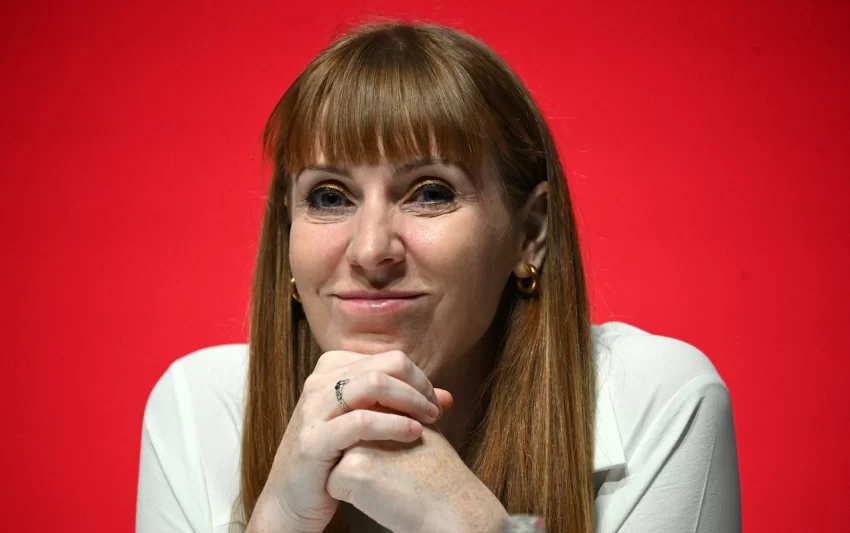German drone producer Quantum Systems spreads its wings in Ukraine
LVIV, Ukraine — Ukraine’s voracious appetite for killer drones, its tech arms race against Russia and the battlefield experience it gives manufacturers make it crucial for companies to be present there.
That’s why Germany’s Quantum Systems is ramping up its production inside Ukraine as well as bolstering cooperation with its plants in Germany.
“We are certainly a role model on how to do it, and we are all models for both sides, because while everyone starts speaking about joint ventures, the possibility to produce here and there, we have been doing it for years,” Oleksandr Berezhny, managing director of Quantum Systems Ukraine, told POLITICO at a drone testing event being held this week in western Ukraine.
Quantum’s reconnaissance Vector drones were among the first donated to Ukraine as humanitarian aid in the initial weeks of Russia’s full-scale invasion in early 2022.
Over the next three years, Quantum Systems opened facilities across the war-torn country — an addition to its existing production and delivery lines in Germany, the United States and Australia.
Being in Ukraine is vital to any military drone maker.
“The whole development in the drone industry is coming right from the Donbas, not from Silicon Valley,” said Matthias Lehna, Quantum’s director for business development and government relations.
While NATO helps sets the standards for military gear, rapid development needs field testing in the frontline conditions of Ukraine.
One example is Quantum Systems’ new updated AI-powered reconnaissance Vector drone, which not only sees but also hears the enemy thanks to its WASP acoustic sensor, which was presented at this week’s show.
The sensor “allows drone pilots to detect artillery and other weapons from a large distance by the sound they make,” said Berezhny.
“We are currently testing it together with their rocket and artillery command to fix the range, to fix the precision and to fix the technical specifications … we will go through the functional tests to get weaponry adoption to service by the armed forces of Ukraine with these updates,” he said.
Looking for deals
That kind of cooperation is what other drone companies are hoping to copy.
This week’s event saw dozens of Ukrainian drone producers demonstrating their buzzing aircraft, hoping to interest Western companies in joint ventures to produce battle-hardened gear.

The Ukrainian government is making efforts to slash red tape, eliminate the corruption that continues to haunt procurement and make it easier for such deals to happen. Earlier this month, Armin Papperger, CEO of Germany’s Rheinmetall, complained that Ukrainian bureaucracy and a lack of cash are stalling progress on the company’s new ammunition factory in Ukraine.
Ukraine’s DotChain Defense procurement system, introduced earlier this year, allows drone manufacturers to speed up deliveries to the front by selling directly to military units instead of the previously centralized and slow procedure through the State Agency for Defense Procurement.
Kyiv is hoping that the experience of companies like Quantum Systems, which is happy with its presence in Ukraine, will entice other companies to take the plunge.
“I’m frequently being asked by the Ukrainian armed forces, by the MOD, to speak with the foreign companies that are entering this market,” Lehna said. “They are asking me to talk to them and to describe the process, the challenges that they can face. And my answer is, ‘Come on.'”
Bereznhy did confirm problems with Ukrainian red tape, but added: “If there was a football match between the German and Ukrainian bureaucracy, who knows who would win?”
He said that streamlined procedures, which allow a company to be set up in 10 minutes, and the ability to hire experienced staff make a compelling case. “With open and transparent communications with the ministry of defense, the company can really work successfully in Ukraine,” Berezhny said.
Added to bureaucratic hassles is the lethal danger of Russia, which hunts and attacks military factories.
“Ukraine is the biggest European country in terms of square meters, but it’s a small country for the Russian rockets, unfortunately,” said Berezhny.
That prompts companies like Quantum to minimize risks by distributing production across Ukraine as well as cooperating with its factories in safe European countries.
Using those methods, Quantum Systems was able to scale up production from 40 drones to 80 drones per month at its secret facilities around Ukraine; its German plants produce 120 a month.
That synergy is working for Quantum.
“While German engineering is precise, it is sometimes looking to solutions which take more time, because we have the time in Germany, but I think the combination of the sense of urgency here, development in Ukraine with German engineering excellence, it’s coming together here in a perfect way,” Lehna said.




















:quality(85):upscale()/2023/09/18/918/n/1922398/a1136b676508baddc752f5.20098216_.jpg)
:quality(85):upscale()/2025/10/09/670/n/1922283/00b944c868e7cf4f7b79b3.95741067_.jpg)
:quality(85):upscale()/2025/10/15/765/n/1922398/29c37a6e68efd84bb02f35.49541188_.jpg)
:quality(85):upscale()/2025/09/09/891/n/1922283/7222624268c08ccba1c9a3.01436482_.png)
















